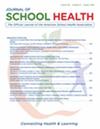Students' Perspectives on Fostering a Sense of School Belonging in Greece: Moving Beyond COVID-19
Abstract
Background
Students' sense of school belonging is important for mental health, physical health, and academic performance. However, some students do not feel as though they belong in their schools. This study investigated Greek secondary school students' perspectives on practices that enhanced their sense of belonging during the COVID-19 pandemic.
Method
An online survey used open-ended questions to explore the views of 226 Greek secondary school students.
Results
Thematic analysis identified four teacher-level practice themes: communication and understanding, respect and inclusion, support to become involved in the school community, and classroom structure. Four school-level practice themes were identified: support and inclusion, psychological support and career guidance, improved school facilities and safety, and activities and opportunities for social connections.
Implications for School Health Policy, Practice, and Equity
Teacher communication that fostered belonging included being approachable, understanding, and caring. Students valued inclusion, safety, and equality. Extracurricular activities and workshops strengthened belonging at school. Group work, creative lessons, and at the school-level, opportunities for social connection, were also important for developing a sense of belonging.
Conclusions
By understanding different level factors linked to school belonging, schools and policymakers can better identify effective and appropriate practices that improve student belonging.

 求助内容:
求助内容: 应助结果提醒方式:
应助结果提醒方式:


